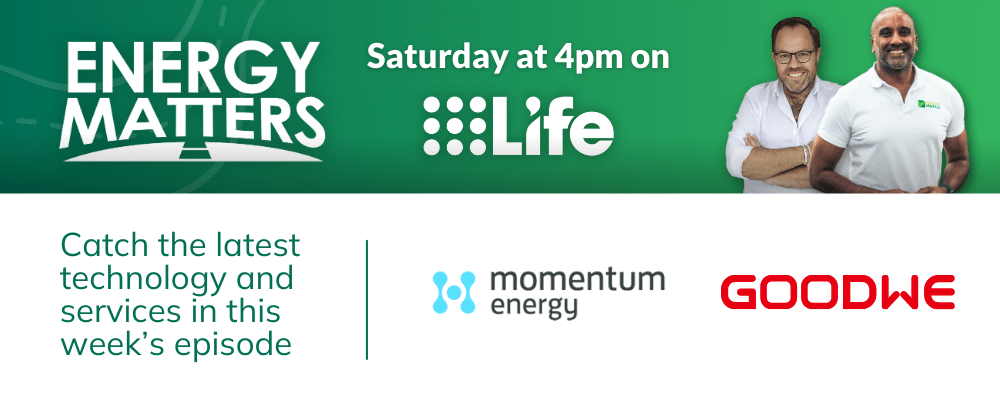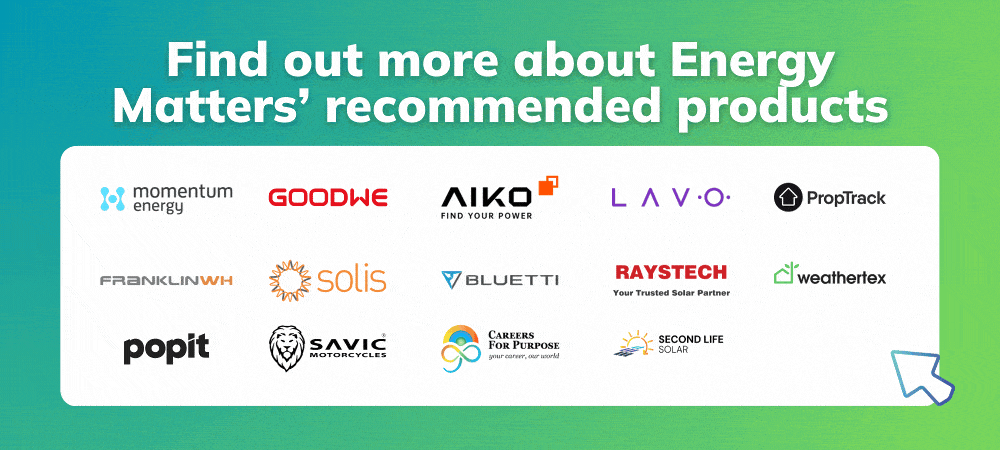Updated on 31 December 2024
As Australia races toward a renewable energy future, innovative technologies are reshaping the energy trading landscape. Blockchain technology has emerged as a groundbreaking tool, particularly in solar energy. From enhancing peer-to-peer energy trading to streamlining the integration of renewable energy, blockchain offers unprecedented opportunities. Let’s explore how blockchain solar energy trading transforms Australia’s energy sector. Discover how you can be part of this revolution with Energy Matters.
Energy Matters helps Australian home and business owners receive personalised solar quotes through our large network of high-quality solar installers. We only work with reputable solar installers with a proven track record of delivering high-quality solar systems.
Understanding blockchain technology
Blockchain is a decentralised and transparent digital ledger often associated with cryptocurrencies. It records transactions securely and tamper-proof, eliminating the need for intermediaries. This revolutionary technology is now being leveraged to address challenges in the energy sector, particularly for renewable energy blockchain applications.
Blockchain or peer-to-peer (p2p) trading looks set to become the biggest disruption in the energy market to date. Through p2p or community solar trading, households or businesses that generate solar power can sell green energy to their neighbours. This effectively decentralises energy trading by creating local markets.
Making it worthwhile to invest in renewable energy technology to make this happen can be a challenge, however. To help solve this, a US university has been developing a software system known as Canopus. The software has been designed to encourage small-scale investment in the technology.
Canopus will work by keeping communications local, enabling Blockchain servers to process a lot more transactions than before – potentially more than a million per second. This should enable homeowners and small businesses to sell renewable to consumers across the globe and to recoup their investments faster.
Peer-to-peer energy trading: Empowering communities
One of the most promising applications of blockchain in solar energy is peer-to-peer (P2P) energy trading. This system allows households and businesses with surplus solar power to sell it directly to others in their community.
How peer-to-peer energy trading works
- Solar generation: Solar panel owners produce electricity.
- Blockchain marketplace: Blockchain platforms are virtual marketplaces where buyers and sellers connect.
- Smart contracts: Pre-programmed agreements automatically execute transactions once conditions are met.
- Energy exchange: The buyer receives energy, and the seller gets compensated instantly.
This model fosters energy independence, reduces reliance on utility companies, and creates localised energy markets.
Blockchain community solar trading interest grows in Australia
In Australia, interest in Blockchain is also growing. In the current energy market, owners of solar power systems can sell the excess power they generate back to the grid. However, through a p2p trading system, they can sell renewable energy directly to their neighbours.
This decentralising and democratising of electricity can provide several advantages. These include reduced costs, the ability to create the terms of trade, and increased security of supply. Also, it enables owners of smaller solar systems to participate and households that do not own solar panels to access affordable green power.

Renewable energy blockchain: A catalyst for change
Blockchain isn’t just improving solar energy trading—it’s revolutionising the entire renewable energy sector. Renewable energy blockchain platforms provide mechanisms to track, certify, and trade renewable energy certificates (RECs).
Applications of blockchain in renewable energy
- Certifying green energy: Blockchain verifies the authenticity of renewable energy sources, ensuring transparency.
- Microgrids: Small, self-sufficient energy networks powered by renewable sources can use blockchain to manage energy flow efficiently.
Carbon trading: Blockchain facilitates carbon credit trading, incentivising green practices.
Existing blockchain initiatives in Australia
At this stage Blockchain in the energy market is still a relatively new concept. However, it is already happening in various parts of Australia.
The Mooroolbark Community Mini Grid trial project for instance was launched in 2016. This program consists of 14 neighbouring houses each fitted with solar panels and a 10 kWh energy storage battery. This mini-grid is the first of its kind in Australia, and in July 2017 the Mooroolbark project jointly won the Clean Energy Council’s Innovation Award.
Also, in November 2017 the Federal Government gave a grant of over $8 million to trial blockchain-powered renewable energy and water systems in Fremantle.
The system consists of a solar plant, rooftop panels, a large solar battery energy storage system, and an electric vehicle charging station. It will also form part of the Smart Cities and Suburbs program – a $50m initiative of the Australian Government.
Ready to upgrade your solar systems and take your energy savings to the next level? Embrace the energy efficiency revolution by upgrading your solar systems and adding a battery, solar inverters + more with Energy Matters.
Energy Matters has been recognised for our continued excellence in the Australian solar industry. We provide our customers with high-quality resources, insight, and access to reputable solar quotes.
Challenges and prospects
While blockchain solar energy trading holds immense potential, it is not without challenges:
- Regulatory hurdles: Ambiguous policies can hinder adoption.
- Scalability: Managing large-scale energy transactions demands robust infrastructure.
- Adoption costs: Initial investments in blockchain technology can be high.
Despite these challenges, the future of blockchain in renewable energy is bright. As the technology matures and regulatory frameworks evolve, blockchain will likely become a cornerstone of sustainable energy systems.
How to get involved
Blockchain technology has the potential to revolutionise the Australian solar energy market by enabling efficient peer-to-peer energy trading and enhancing grid stability. By embracing blockchain and other innovative technologies, Australia can harness the full potential of its renewable energy resources and build a more sustainable energy future.
Whether you’re a homeowner with solar panels or a business looking to embrace sustainability, blockchain solar energy offers opportunities to save costs and contribute to Australia’s renewable energy goals. Start your journey toward a sustainable future today with Energy Matters—because every action counts. By partnering with Energy Matters, you can stay ahead of the curve in adopting innovative energy solutions.
Energy Matters is the leading supplier of solar quotes in Australia due to its vast partnership network of high-quality installers. With Energy Matters, you can be sure you’re getting the best possible deal on solar energy.




















































